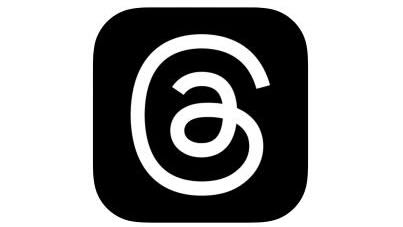
Last week, Mark Zuckerberg’s Meta released a Twitter competitor named Threads. Lots of Twitter ex-pats quickly signed up for the new platform. So did a reported 100 million in its first four days, in part because Meta has made Threads an offshoot of Instagram. In fact, you need an Instagram account to sign up for Threads.
I wanted to see what all the early noise was about, and I happened to have an Instagram account. I used it to follow exactly two people: my oldest friend, Bill (who I’ve known for over fifty years), and my daughter (who I’ve known for over twenty-nine years). I check in occasionally to see what they’ve posted, but I’ve never put any of my own content on that site.
I used that Instagram account to open a Threads account and look around. It looks just like the site that Elon Musk has been rapidly destroying, although it’s only available on phones, not tablets or laptops. Threads also doesn’t have hashtags or a lot of other features, but perhaps that’s because this is the first public version, hurried to release to garner lots of attention, with plenty of upgrades and changes to come.
Several other platforms have tried to become the Twitter alternative, including Post.News, Mastodon, and Bluesky. The latter came from Jack Dorsey, one of the original creators of Twitter, who has since left the company in Musk’s oily hands. Horrified at what his baby has been turned into, Dorsey is trying to steal some of Musk’s thunder. But neither Bluesky nor the others have attracted a large enough user base to matter. It took a monster like Meta to create what could take even more wind out of the tattered sails of Twitter.
Musk, of course, is outraged, and has told his lawyers to file suit, claiming that Zuckerberg hired former Twitter engineers to use its intellectual property to create Threads. Zuck fired back that none of the dozen or so people who did the coding for Threads ever worked at Twitter. But even if they did, how important could they have been if Musk canned them?
In November, 2021, I announced publicly that I was deleting my Facebook account permanently. Among the reasons I cited:
Facebook’s role as the number one spreader of disinformation worldwide. That’s different from misinformation, which can sometimes be attributed to mere mistakes. Disinformation, on the other hand, is the willful dissemination of purposely incorrect statements, memes, and stories in order to further an agenda — lies about the 2020 election, lies about the 1/6 insurrection, lies about the efficacy of vaccines, and pretty much every conspiracy theory ever conceived.
That’s nowhere near a comprehensive list of the evil Facebook has done. Tack on the free platform it offers for spreading hate, racism, anti-Semitism, white nationalism, and other forms of extremism. And the negative impact doing so has had on politics not just in the USA but around the world. And the harm Facebook and its subsidiaries continue do to the self-image of teenage girls.
I still feel the same way about the company and don’t want to be counted among the Meta population. Therefore, I deleted my Instagram account last night — and with it, the username I had used to log onto Threads. It may go on to become a must-have app for a huge number of people, but I won’t be joining them.
I admit to substantial ambivalence about remaining on Twitter, a platform I’ve been part of for fourteen years. For much of that time, it was a valuable resource for information and connections to a lot of smart people I enjoyed following, plus a way for me to promote the content on HarrisOnline.com.
Yes, I’m well aware of the evil that is Elon Musk and the irreparable damage he has done to the social media outlet he never should have bought in the first place. Under his reign, much of what I said about Facebook in 2021 now applies to Twitter. That has resulted in many of the folks I followed (and who followed me) abandoning the site entirely.
I may eventually join them, but not quite yet — and I can’t give you a good reason why. That’s a tattered thread I’m just not ready to pull at.
